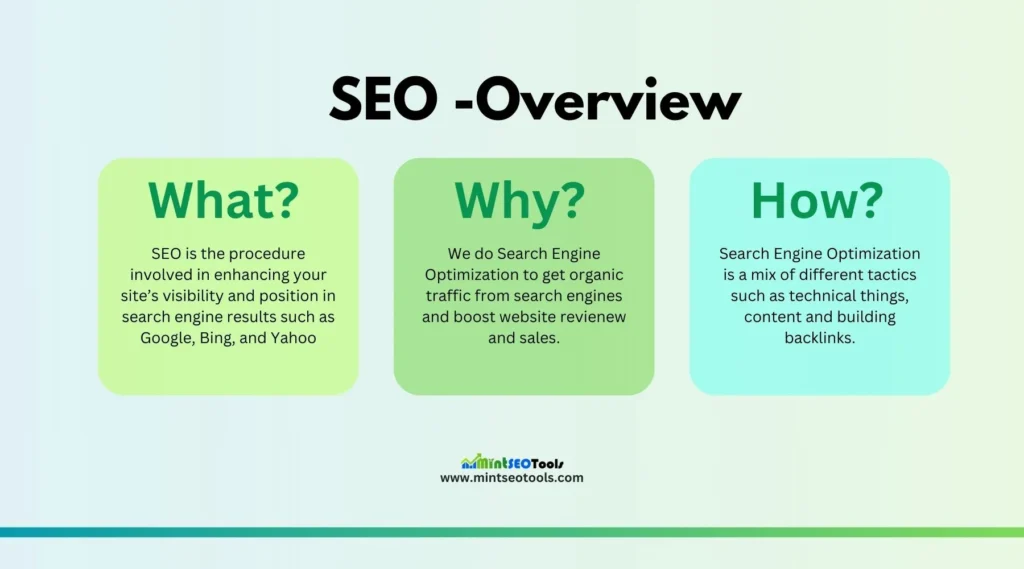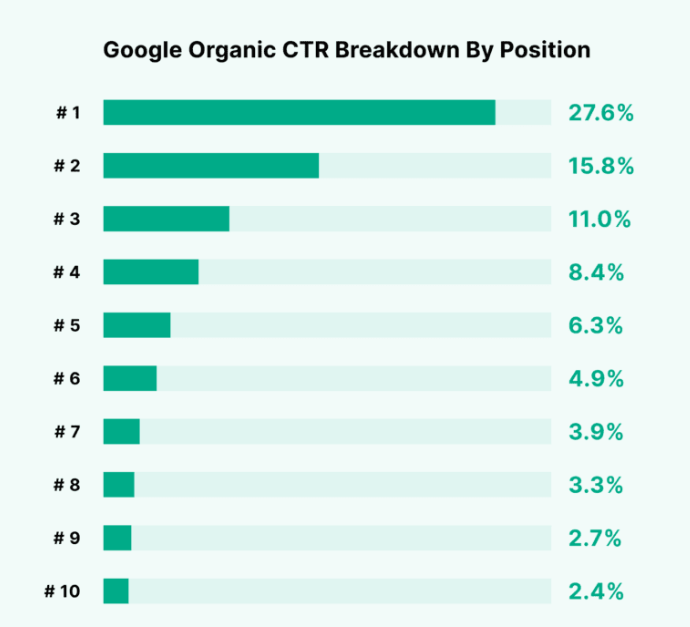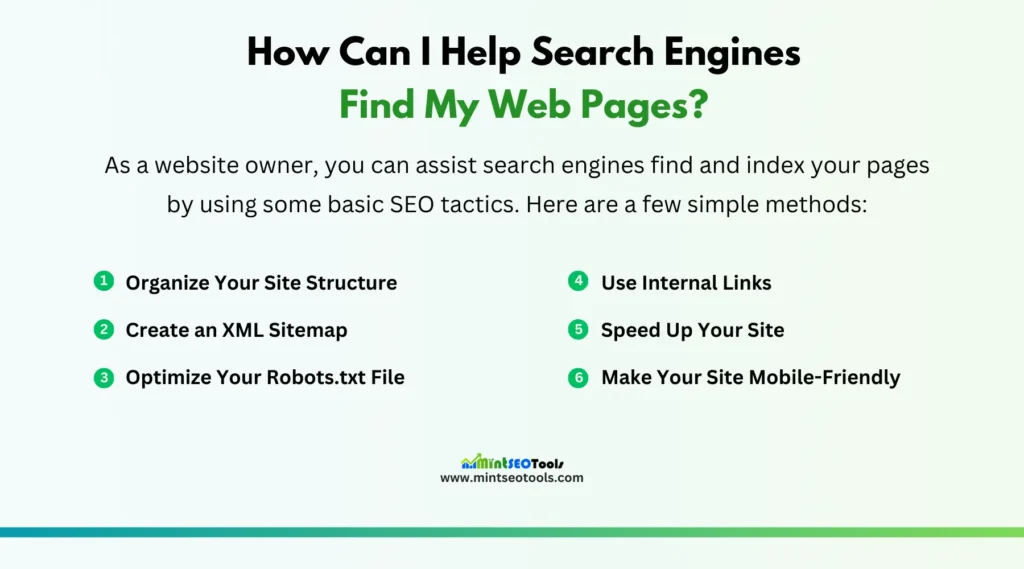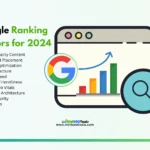What Is SEO?
Search engine optimization (SEO) is making websites more visible on search engines such as Google to generate more organic traffic. SEO is about creating appropriate, high-caliber content that addresses users’ queries and provides a good user experience.
SEO Overview – What, Why, and How

SEO stuff happens on-site and off-site, usually known as “on-page” and “off-page” SEO respectively. Essentially, this is what SEO involves in real-time:
- Keyword research
- Content creation and optimization
- Technical Optimization
- Link building
Why Is SEO Important?
Understandably, billions of searches are made on Google every day given the abundance of information available online and the way items are researched for potential. It’s critical to rank highly for relevant terms in search engine results pages because search engines are typically major sources of traffic for websites.
There is a correlation between higher rankings and increased website traffic. The first organic result receives ten times more clicks than that in the tenth position. Moreover, over 50% of all clicks go to the top three organic search results.
Here is where SEO becomes very important. More traffic means improved rankings which leads to more customers and better brand recognition. Not paying attention to SEO means you are losing an important avenue of traffic thereby giving it away to your rivals.
Here’s the complete CTR segmentation for organic results appearing first page of Google:

How Do Search Engines Work?
The purpose of search engines is to provide the most relevant results to users’ queries. They accomplish this through crawling, indexing, and serving results.
1- Crawling
Search engines use bots, often known as spiders or crawlers, to surf the web and find new or updated websites. Via hyperlinks, these little programs navigate between websites as though they were actual Internet users.
Let’s take an example where you have a new blog post. A bot may find this page by browsing via the homepage or other sites on your website. Bots won’t be able to find a page at all if there isn’t even one link pointing towards it.
2- Indexing
A bot that finds a webpage goes through its content to determine what kind of content it is. Examining the text, images, and other media on it, as well as the headings and synopses that correspond to each, is part of this process. The information is then stored by such engines in a location known as the index.
For example, a search engine will index your webpage under the keyword “best hiking trails,” making it easier for people looking for similar phrases to find it.
3- Serving Results
The search engine algorithm analyses indexed pages to determine which are the most relevant and high-quality when a user queries them. The different pages are ranked according to factors including user interactions, site architecture, and keyword usage.
For example, if someone searched for “best hiking trails,” the search engine would find websites that included these terms along with thorough, understandable, and reliable information. As a result, the top portion of search results displays the pages that match the query the best.
How Can I Help Search Engines Find My Pages?
As a website owner, you can assist search engines find and index your pages by using some basic SEO tactics. Here are a few simple methods in the following image:

- Organize Your Site Structure
- Create an XML Sitemap
- Optimize Your Robots.txt File
- Use Internal Links
- Speed Up Your Site
- Make Your Site Mobile-Friendly
Search engines can effectively crawl and index your site through the implementation of these technical SEO practices that will increase your chances of ranking higher in search results, thus attracting more visitors.
How Does SEO Work?
Google uses sophisticated algorithms to rank pages based on a wide range of ranking-influencing criteria. Though the precise workings of these algorithms are still unknown, you can optimize your pages if you know the fundamentals of how they operate.
Ensuring Relevance
Providing relevant content is still the most important aspect of SEO. The goal of Google’s search results is to correspond with users’ intents when they enter query terms like:
- Navigational
- Informational
- Commercial
- Transactional
Look up the top results right now and adjust your content to match the type of information people are searching for to ensure that it satisfies search intent.
Creating Quality Content
Finding the proper keywords is only the first step. To produce content of excellent quality that will rank well, one must comply with:
- Comprehensiveness
- Uniqueness
- E-E-A-T signals
- Readability
Providing Great Usability
Google prioritizes user-friendly websites. Technical SEO guarantees that your site satisfies usability standards, which encompass the following:
- Site Security
- Page speed
- Mobile-friendliness
- Ease of use
It is advantageous to have found and resolved usability problems by carefully auditing the entire website.
Building Authority
Building backlinks is an essential component of off-page SEO, as it gives your website an advantage in search engine rankings. A backlink gains trustworthiness as its quality increases, and in this way, you can increase your website’s authority.
Keyp in Mind these SEO Truths:
- SEO is about demonstrating value to Google, not cheating it.
- Focus on SEO basics done well and consistently.
- SEO is a long-term strategy.
- SEO involves more than just plugins.
- It’s an ongoing process, not a one-time task.
- Understanding your audience is essential.
- SEO is part of a larger puzzle, including the core business offering.
Get Started With SEO
It’s time to take action after you understand SEO. Use these strategies to rise in rank and maintain the upper hand over your competitors.
- What Is a Google AI Overview? The SEO Survival Guide (2026) - February 3, 2026
- How Search Engines Use AI to Rank Content: The 2026 Deep Dive - January 27, 2026
- What Is AI SEO? The Complete Guide to Ranking in AI-Powered Search (2025) - December 21, 2025
Give me the latest news!
Looking for SEO tips? Subscribe to our newsletter to receive updates on the content you care about.





